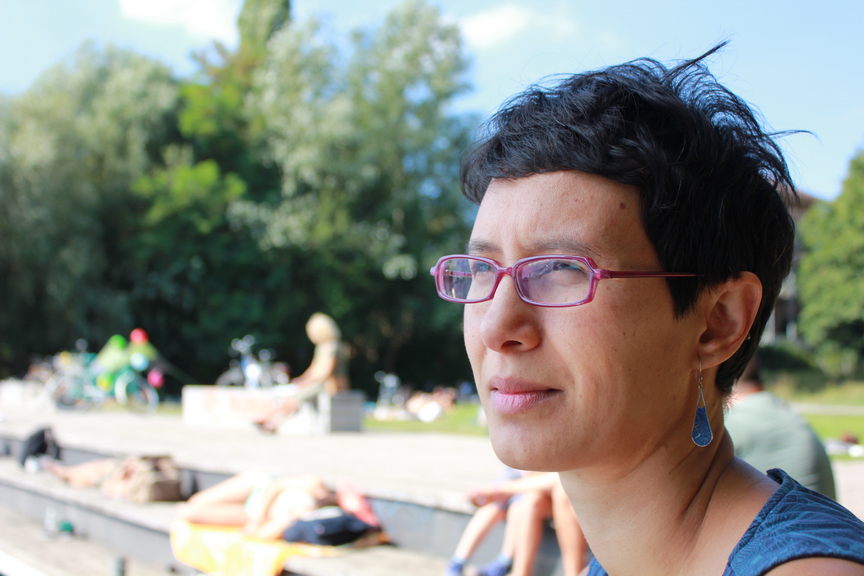
CUW was established in 2015 as a platform to provide space for dialog and practical action. It works in close cooperation with universities, public service providers, cooperatives, social movements, non-governmental organizations, cultural institutions, and art collectives, to raise critical questions and produce alternatives to tackle water inequalities.
CUW works at the interphase between academia and practice. It employs a diversity of research methods including archive work, surveys, interviewing, data visualization and documentary research to produce academic work, educational material, artistic formats as well as policy papers.
CUW engages with different Research Lines that focus on the co-evolution of utility companies, urban infrastructures and access to water from a historical and multiscalar perspective. Results are translated to Teaching formats and Publications, and communicated to wider audiences through a diversity of Events.
Founder

Marcela López is an academic and writer, specializing in access to water and inequalities in cites. She studied engineering (2000) and obtained a PhD in urban geography (2015) at the Freie Universität Berlin, Germany. Between 2017 and 2018, she was a Research Fellow at the Rachel Carson Center for Environment and Society, Munich.
She is Program Coordinator, Capacity Development at Water Integrity Network (WIN), and teaches in the Urban Management Program at the Technische Universität Berlin, New York University, Berlin and in the Postgraduate Program in Sustainable Architecture at the Escola Superior Artística do Porto (ESAP).
She has published academic, educational and policy pieces in the fields of corporatization, water governance, urban infrastructures, citizenship; socio-ecological inequalities; urban political ecology; and environmental history.
Her forthcoming book (2022, Routledge), Corporatization and the Right to Water in Colombia: Conflicts, Citizenship and Social Inequality, explores how conflicts around access to water shape cities, citizenship and infrastructures by tracing how water is commodified and controlled by the Public Enterprises of Medellín (EPM), one of the most successful public water utility companies in the global South.
Collaborators
Rachel Carson Center for Environment and Society, LMU Munich
Center for Metropolitan Studies (CMS), Technische Universität Berlin
Urban Management Program, Technische Universität Berlin
Habitat Unit, Technische Universität Berlin
Escola Superior Artística do Porto (ESAP)
Department of Political Science, Universidad Nacional Medellín
Zentrum für Kunst und Urbanistik (ZK/U)
Penca de Sábila – Ecological and Cultural NGO
Critical Concrete – Social & Sustainable Architecture
Deúniti – Creative Colective
aufsiemitgebruell – Design Studio
Partners
Municipal Services Project (MSP)
Governance & Sustainability Lab, Trier University
School of Architecture and Planning (SoAP), University of the Witwatersrand
LACIS, University of Wisconsin-Madison
The Oslo School of Architecture and Design (AHO)
Instituto Pensar, Universidad Javeriana
CIDER, Universidad de los Andes
Department of Geography, Universidad Nacional Bogotá
Arnold Bergstraesser Institute, University of Freiburg
CONFIAR – Financial Cooperative
Public Services International (PSI)
Syndicate of Workers of Medellín’s Public Utility Company (SINPRO)
Centre for International Migration and Development (CIM)
Memorias del Agua, Museo de Antioquia
Gallery of Contemporary Art Paul Bardwell
Carolina Caycedo – Artist
Mesa Interbarrial de Desconectados (Roundtable of Disconnection)




